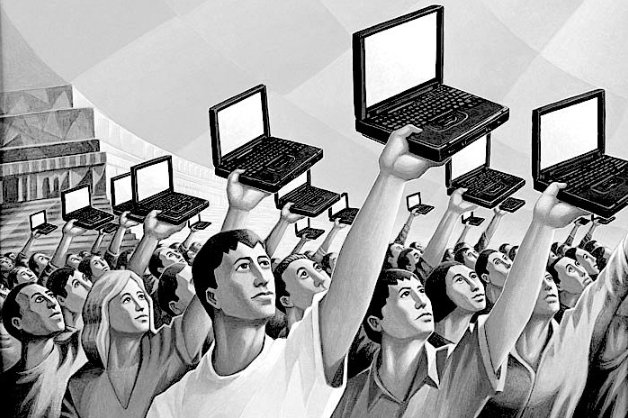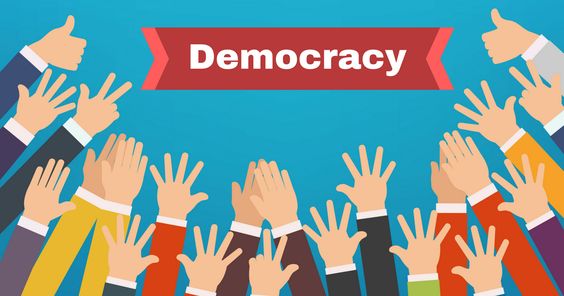How to Consolidate Democracy
Consolidating a democracy is an ongoing process, but there are some key areas to focus on:
-
Strong Institutions: A democracy needs strong institutions like an independent judiciary, a free press, and a fair electoral system. These institutions provide checks and balances and ensure everyone plays by the rules.
-
Rule of Law: The law should apply equally to everyone, regardless of wealth or status. This builds public trust in the system and discourages corruption.
-
Economic Development: When people have a stake in the system and a path to prosperity, they are more likely to support democracy.
-
Civic Engagement: An active and informed citizenry is essential. This includes education about democratic values, participation in civil society, and holding leaders accountable.
-
Political Culture: A democratic culture requires tolerance for differing viewpoints and a willingness to compromise. This can be fostered through education, dialogue, and promoting media literacy to combat misinformation.
Here are some additional points to consider:
-
Peaceful Transfers of Power: A hallmark of a consolidated democracy is the peaceful transfer of power after elections. This demonstrates that competition within the democratic framework is legitimate.
-
Addressing Inequality: Deep economic or social inequalities can undermine democracy. A focus on inclusive growth and social safety nets can help.
-
Adaptability: Democracies need to adapt to changing circumstances. This might involve reforms to electoral systems or finding new ways to engage citizens. Don’t Miss to Check Out Our Website: CANSPECTIVE
Consolidating democracy is a complex challenge, but by focusing on these areas, countries can build a more stable and resilient democratic system.

Understanding Democracy
Definition of Democracy
At its core, democracy is a system of government where power lies with the people. Citizens exercise this power directly or through elected representatives. Democracy emphasizes equality, freedom, and justice, making it the bedrock of fair governance.
Key Features of a Democratic System
A democratic system is characterized by free and fair elections, a vibrant civil society, the rule of law, and the protection of human rights. These elements ensure that the government is accountable to the people and that citizens have a say in how they are governed.
Challenges to Democracy
Internal Threats
Internal threats to democracy can include corruption, political polarization, and a lack of political will to uphold democratic norms. These threats can erode public trust and destabilize democratic institutions.
External Threats
External threats may come from foreign interference, global economic pressures, or the influence of authoritarian regimes. These factors can undermine a country’s sovereignty and democratic processes.
Strengthening Democratic Institutions
Role of Independent Judiciary
An independent judiciary is crucial for upholding the rule of law and protecting citizens’ rights. It ensures that laws are applied fairly and that government actions are checked for legality.
Importance of Free Press
A free press is essential for transparency and accountability. It provides the public with information, scrutinizes government actions, and offers a platform for diverse viewpoints.
Transparent Electoral Processes
Transparent and fair elections are the cornerstone of democracy. Ensuring that electoral processes are free from manipulation and accessible to all eligible voters reinforces the legitimacy of the government.
Promoting Civic Education
Importance of Civic Education
Civic education empowers citizens with knowledge about their rights and responsibilities. It fosters informed participation and helps people understand the significance of their role in a democracy.
Ways to Implement Civic Education
Implementing civic education can be done through school curricula, public awareness campaigns, and community programs. Encouraging critical thinking and active engagement from a young age cultivates a robust democratic culture.
Encouraging Political Participation
Voter Engagement Strategies
Increasing voter turnout and participation can be achieved through education, simplifying the voting process, and making voting accessible. Initiatives like voter registration drives and early voting options can significantly boost engagement.
Role of Civil Society Organizations
Civil society organizations play a vital role in mobilizing citizens, advocating for policy changes, and holding the government accountable. They act as a bridge between the public and the government.
Ensuring Government Accountability
Mechanisms for Accountability
Mechanisms such as audits, checks and balances, and parliamentary oversight ensure that government officials act in the public’s interest. Transparency in government operations builds trust and accountability.
Role of Anti-Corruption Agencies
Anti-corruption agencies investigate and combat corruption, promoting integrity and trust in public institutions. Strong anti-corruption measures are essential for a healthy democracy.
Protecting Human Rights
Fundamental Human Rights in a Democracy
Human rights such as freedom of speech, assembly, and the right to a fair trial are fundamental in a democracy. Protecting these rights ensures that citizens can freely participate in the democratic process.
Ensuring Equal Rights for All
A democratic society must ensure equal rights and opportunities for all its citizens, regardless of race, gender, or socioeconomic status. This inclusivity strengthens the social fabric and promotes justice.
Building Strong Political Parties
Importance of Political Parties
Political parties are essential for representing diverse viewpoints and forming a functioning government. They mobilize voters, develop policies, and provide a platform for political participation.
Characteristics of Effective Political Parties
Effective political parties are transparent, accountable, and committed to democratic principles. They engage with the public, address their concerns, and work towards the common good.
Enhancing Economic Stability
Economic Policies Supporting Democracy
Economic stability supports democracy by reducing poverty and inequality, which can fuel discontent and destabilize governments. Policies that promote sustainable growth and fair distribution of wealth are crucial.
Addressing Economic Inequalities
Addressing economic inequalities through social welfare programs, progressive taxation, and equitable economic opportunities ensures that all citizens benefit from economic growth, strengthening democratic stability.
Promoting Social Cohesion
Importance of Social Cohesion
Social cohesion fosters unity and trust among citizens, which is vital for a stable democracy. It reduces conflicts and promotes a sense of belonging and shared purpose.
Strategies to Foster Unity
Promoting dialogue, understanding, and collaboration among diverse groups helps build social cohesion. Policies that address social inequalities and promote inclusivity are also key.
Addressing External Influences
Impact of Global Politics
Global politics can influence domestic democratic processes. International alliances, trade relations, and geopolitical dynamics can all affect a nation’s democracy.
Mitigating Foreign Interference
Strengthening cyber defenses, safeguarding electoral integrity, and promoting diplomatic engagement are ways to mitigate foreign interference and protect national sovereignty.
Leveraging Technology
Role of Technology in Democracy
Technology can enhance democracy by facilitating communication, increasing transparency, and enabling more efficient governance. E-governance initiatives can make public services more accessible.
Preventing Cyber Threats
Protecting against cyber threats is essential for safeguarding democratic institutions. This includes securing electoral systems, protecting sensitive data, and educating citizens about online threats.

Case Studies
Successful Democracies
Countries like Norway and Canada are often cited as successful democracies due to their strong institutions, respect for human rights, and robust civic engagement. Studying these examples can provide valuable insights.
Lessons from Struggling Democracies
Countries facing democratic backsliding, such as Venezuela and Turkey, offer lessons on the importance of maintaining checks and balances, protecting freedoms, and ensuring accountability.
Conclusion
Consolidating democracy requires a multifaceted approach, addressing everything from political participation to economic stability and social cohesion. By strengthening democratic institutions, promoting civic education, and ensuring government accountability, we can build a resilient and thriving democracy. The future of democracy depends on our collective efforts to uphold its principles and adapt to emerging challenges.
FAQs
What is democracy?
Democracy is a system of government where power lies with the people, who exercise it directly or through elected representatives. It emphasizes equality, freedom, and justice.
How can civic education strengthen democracy?
Civic education empowers citizens with knowledge about their rights and responsibilities, fostering informed participation and understanding of the democratic process.
What are the main challenges to democracy?
Challenges to democracy include internal threats like corruption and political polarization, and external threats such as foreign interference and global economic pressures.
How does economic stability support democracy?
Economic stability supports democracy by reducing poverty and inequality, which can destabilize governments and fuel discontent. Fair economic policies promote democratic stability.
Why is government accountability important in a democracy?
Government accountability ensures that officials act in the public’s interest, maintaining trust and legitimacy. Mechanisms like audits and parliamentary oversight are crucial for accountability.

Welcome to Canspective.ca, where Liam brings a unique perspective to the Canadian experience!
Liam is a talented writer who is dedicated to uncovering the stories that shape our nation and celebrating the diverse voices that make Canada so special. With a passion for exploring the intersections of culture, identity, and society, Liam’s articles offer insightful commentary and thoughtful analysis on the issues that matter most to Canadians.



